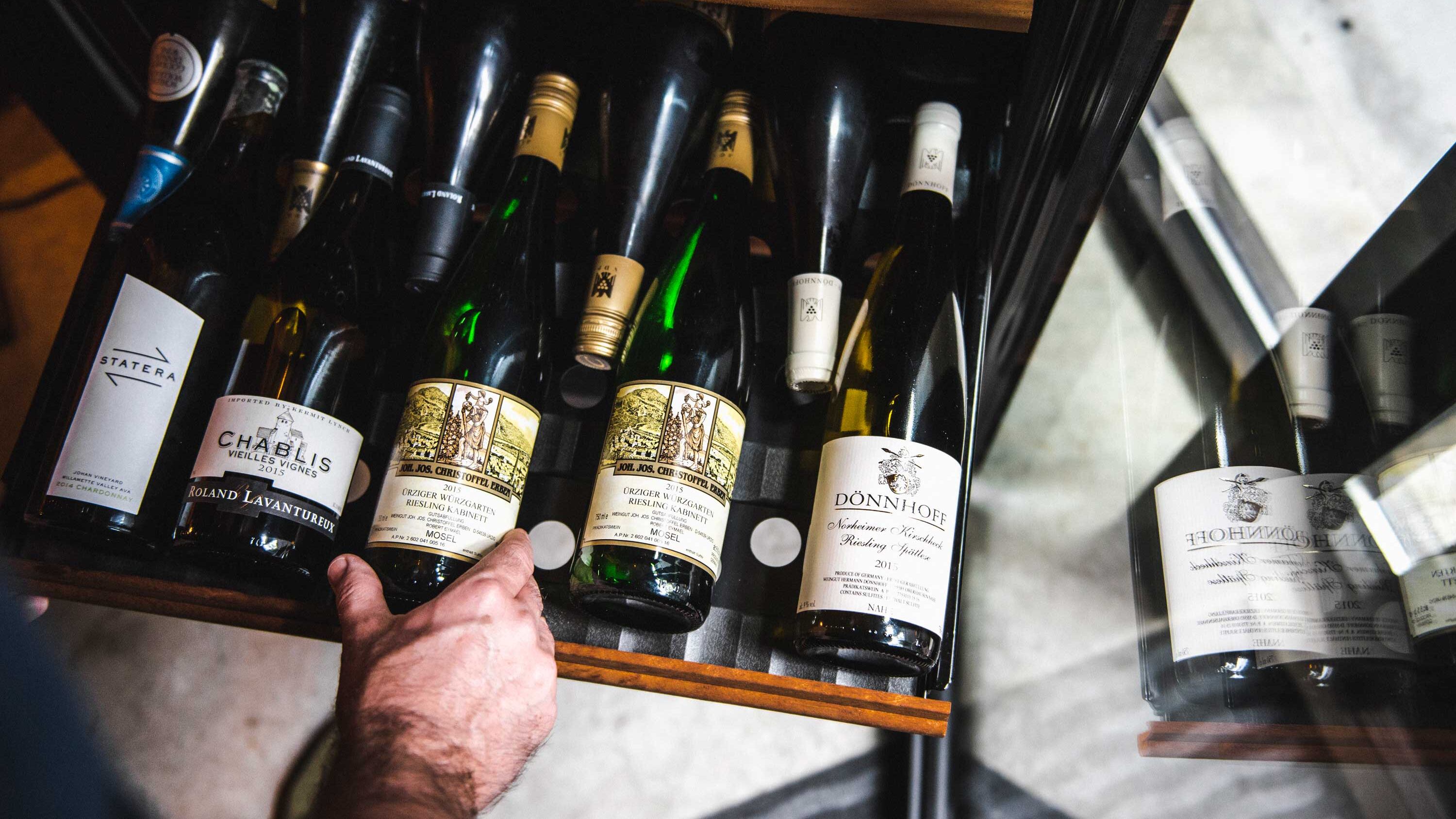Update, Jan. 7 at 12:30 pm: This story has been updated with a statement from the Oregon Wine Board
Oregon Secretary of State LaVonne Griffin-Valade’s Audits Division released a management letter today critical of sloppy practices at the Oregon Wine Board.
The board is a semi-independent state agency with a budget of about $3 million. The board’s nine members are appointed by the governor. The board exists to promote the state’s wine industry, which has grown into a big business in Oregon. In its latest annual report, the Oregon Wine Board said the industry sold 5.7 million cases in 2022 and that the state’s more than 1,476 vineyards are now growing grapes on nearly 45,000 acres.
As part of a larger review of state boards and commissions, auditors in 2024 examined the board’s books and records as well as the state wine cellar, which is split between two locations: Mahonia Hall, where Gov. Tina Kotek lives, and an private storage facility in Portland.
The auditors found issues in both places.
“The Legislature charged OWB with establishing the cellar in 1985,” auditors wrote. “Since 1988, the cellar has been physically located at Mahonia Hall, the Governor’s official residence. This may be why staff have referred to the cellar as the ‘Governor’s cellar.’”
Oregon statutes lay out two functions of the board that are relevant to the auditors’ examination:
“The Oregon Wine Board shall establish a state wine cellar by purchasing or receiving donations of wines made in this state from fruit or grapes grown in this state. Wines collected in the state wine cellar may be: Sold to state governmental agencies for service at official governmental entertainment functions [or] “Sold to the Governor and to the administrative heads of state agencies on official government business to present as gifts when required by protocol or social custom.”
But in their four-page management letter, auditors said they’d determined that the board has failed to keep track of inventory—currently at least 900 bottles—and in apparent violation of the law, has been donating wine to Oregon governors and state agencies, rather than selling it to them.
“OWB does not have an inventory for the cellar or for its storage space,” the auditors’ letter says. “To properly account for the wine, OWB should have an inventory. Further, there is no record of when, the purpose, and which wines have been used over the years. The lack of internal controls creates a risk for misuse of state assets.”
The auditors also dinged the board for failing to account for the value of the wine it holds in the state cellar.
“OWB is required by statute to follow Generally Accepted Accounting Principles to accurately disclose the financial condition and operation of the board. This includes recording revenues, expenditures, and assets, and liabilities,” the letter says. “Using an average price per bottle of Oregon wine, auditors roughly estimate the nearly 300 bottles held in the cellar and the minimum of 600 bottles in storage to be worth at least $40,000.”
Finally, the auditors took issue with how the wine is distributed. “Staff report the wine in the cellar is being used for official events but has not been sold to state agencies or officials as specified in statute,” the letter says. “Wine has been pulled from the cellar for events as needed. This has been the common use of cellar wine during the current and at least the prior two administrations.”
In other words, under Kotek, as well as Govs. Kate Brown and John Kitzhaber, the cellar has been treated as if its contents belong to the governor rather than to the state.
The auditors recommend the Wine Board begin tracking inventory and accounting for its value—and seek guidance from the Oregon Department of Justice about its current practice of giving wine to public officials for free.
“Legal advice from DOJ could determine if the current practice of taking wine from the cellar without payment is allowed under existing statutes,” the letter says.
The wine industry is a player in Salem, part of an alcohol trade group that has successfully fended off tax increases on beer and wine. Like other groups seeking to influence policymakers, the industry employs lobbyists and works the corridors of the Legislature. That’s typical and expenses incurred are disclosed. Auditors warned about the less visible ways the Wine Board may seek to influence policymakers.
“Without proper inventory and management controls, OWB cannot account for the cellar, how the wine is being used, and assure it is used appropriately,” auditors concluded.
The management letter offers parallels to another state investigation, in which, as the The Oregonian first reported, six senior employees of the Oregon Liquor and Cannabis Commission diverted rare and expensive bottles of bourbon for their personal use and to friends. An Oregon Department of Justice investigation found no basis for criminal charges but found OLCC controls lax.
In a statement, the Wine Board says it will follow the auditors’ suggestions. “The Oregon Wine Board is working with the Oregon Department of Justice to address the Oregon secretary of state’s letter relating to the management of the state wine cellar,” the board said. “The board and staff are fully committed and eager to address the recommendations of the letter and update the OWB’s procedures and policies accordingly.”

